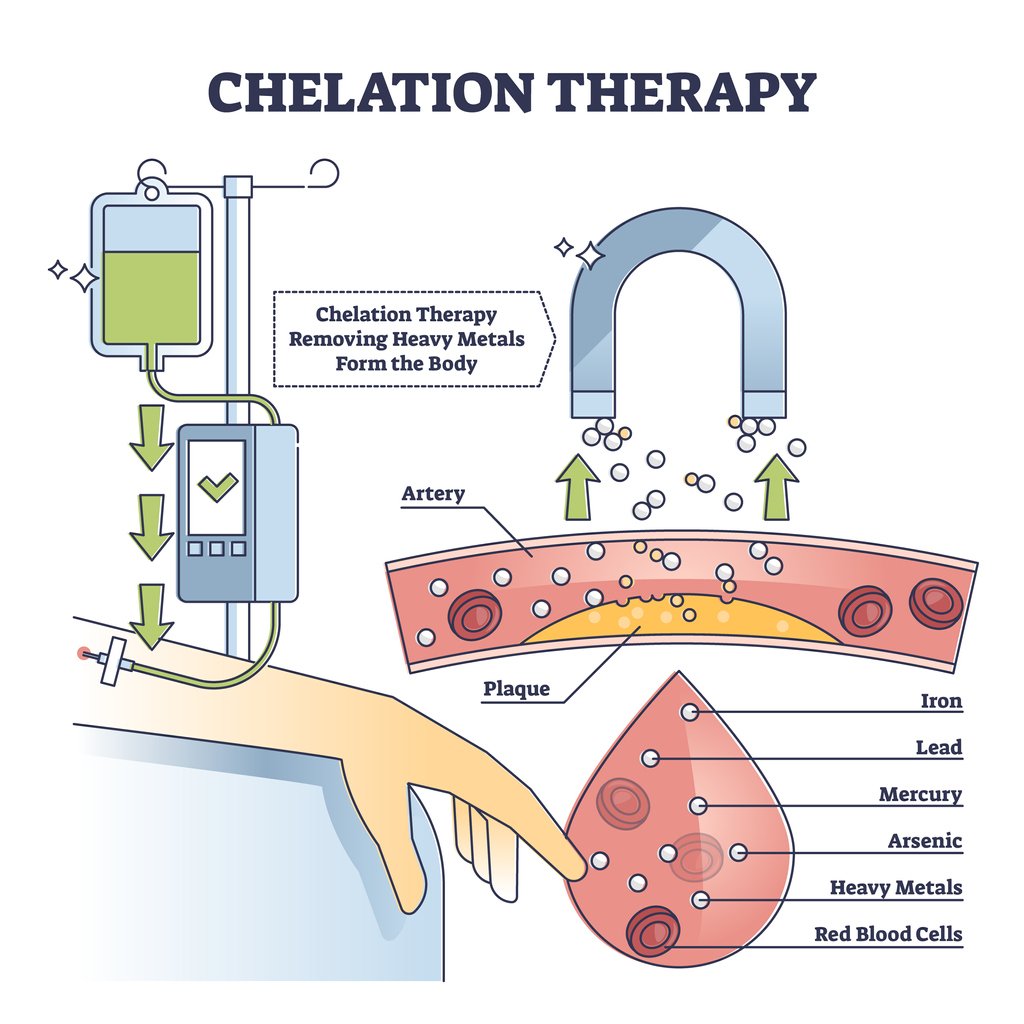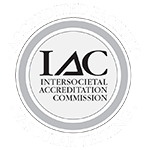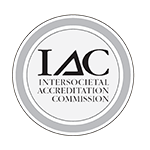
We take pride in being a medical practice that focuses on sharing knowledge and showing transparency with our patients. This has been an underlying principle since the inception of our New Jersey-based group in 1963.
Over these years, we have fielded many questions from patients about certain medical treatments. We try to assess “alternative” or new therapies with an unbiased view. We rely on scientific data to make our decisions.
One topic raised by some patients is Chelation Therapy. Below, we discuss this therapy and our thoughts on its efficacy.
First, let’s discuss your arteries and how plaque may occur:
How Plaque Develops in the Arteries
Arteriosclerosis, or hardening of the arteries, occurs when fatty and calcium deposits gather in the arteries and build up, narrowing the passageways that carry blood to the heart, extremities and brain.
In some cases, the plaque buildup can cause a blockage, resulting in a heart attack, leg pain or stroke.
How Long Does It Take for Plaque to Build Up in My Arteries?
The answer to this question varies and is dependent on numerous factors, including diet and lifestyle, genetics and other factors. A family history of heart disease, places you at greater risk as do cigarette smoking and diets high in saturated fats. . Arterial plaque can show up any time, but is likely to increase and, become problematic, as you age.
Does Chelation Therapy Get Rid of Plaque in My Arteries?
The search for less invasive, more natural remedies, for common ailments and conditions has led to the discovery of a multitude of practices: medicines and preventative and curative treatments that have dramatically improved the lives and health of patients.
With that said, not all alternative treatments are appropriate, effective or even safe. It's important to not only do your research, but also to consult with experts before embarking on treatments or preventative therapies.
One such treatment that some have considered for arterial plaque buildup is chelation.
Chelation is a therapy used to rid the body of heavy metals and minerals. Chelation treatment usually consists of intravenous medicines that bind to metals such as mercury and iron and help flush them out of the system.
In recent years, chelation therapy has been explored for other conditions, such as Alzheimer's disease, autism and heart disease.
The theory behind chelation treatment for cardiovascular disease is that arterial plaque contains calcium, and so chelation uses EDTA (Ethylenediaminetetraacetic acid) infusions to bind to and flush out the calcium in the hopes of clearing the arteries of plaque.
While chelation has some limited benefits for those who experience illness from excessive metals in their body, chelation has not been proven to be an effective or safe treatment for cardiovascular disease.
“If you are seeking a solution for plaque buildup in your arteries, chelation is not currently the answer . . . for the time being it is not cleared by the FDA . . . or even effective in the treatment of arterial plaque buildup.”
Has Chelation Been Studied?
Yes. A study was conducted to determine if chelation would get rid of the plaque in arteries or prevent heart disease in a group of participants. While there was some limited success in a group who were diagnosed with diabetes, there was no significant reduction in heart disease for the study participants. In fact, there were adverse effects documented, and studies show that chelation can cause more harm than good.
The most notable problems occur when the chelation medications bind to essential metals and minerals and flush them out of the body. This can cause significant deficiencies that adversely affect the body. In extreme cases, chelation treatment can damage organs and cause death.
For those who are concerned about a family history of cardiovascular disease, or if you have other lifestyle risk factors, it's important to work with a knowledgeable provider who can guide you toward solutions that are safe, effective, and will work for you.
Over time, it's likely that chelation will continue to be studied as a treatment for certain conditions; however, currently, it is not cleared by the FDA as a treatment for cardiovascular disease nor have studies shown it to be safe or even effective in the treatment of arterial plaque buildup.
If you are seeking a solution for plaque buildup in your arteries, chelation is not currently the answer. If you want to get rid of the plaque in your arteries, it's important to work closely with your healthcare provider. For more information on arterial and vein health, contact us at The Cardiovascular Care Group today.








_2.jpg)